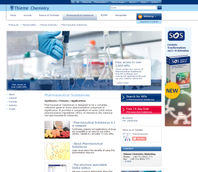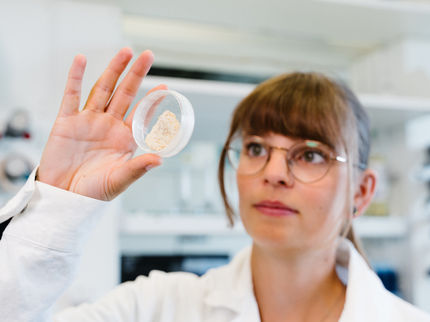Draft report for the re-evaluation of glyphosate
glyphosate in an active substance widely used in herbicides and is currently subject to a comprehensive re-evaluation process by the European Union (EU). This regular re-assessment of active ingredients in plant protection products is a routine procedure controlled by the European Commission. Within this re-evaluation new findings in research and development as well as new aspects in the risk assessment are taken into consideration. As a result of this re-evaluation, the Commission will decide whether or not the active substance may be applied in plant protection products in future.
During this re-evaluation procedure Germany evaluates glyphosate and a sample formulation of a plant protection product containing glyphosate. In this framework Germany acts as Rapporteur Member State (RMS) writing a draft re-assessment report. Several competent authorities in Germany are involved in the writing process (i.e., the Federal Institute for Risk Assessment -BfR-, the Federal Environment Agency, the Julius Kuehn-Institute and the Federal Office of Consumer Protection and Food Safety). After the establishment of a draft re-assessment report this report will be send to the European Food Safety Authority (EFSA).
The Federal Institute for Risk Assessment (BfR) has already completed the draft re-assessment report on health risk assessment. For this purpose, more than 150 new toxicological studies were evaluated for the first time and are described in detail in the draft report by BfR. In addition, all available toxicological studies (nearly 300) were re-assessed from the point of view of compliance with actual quality standards in study conduction and confirmation of interpreted results. Furthermore, about 900 publications from scientific journals have been considered in the draft report and more than 200 publications were reviewed in detail. In conclusion of this re-evaluation process of the active substance glyphosate by BfR the available data do not show carcinogenic or mutagenic properties of glyphosate nor that glyphosate is toxic to fertility, reproduction or embryonal/fetal development in laboratory animals. As a result of the re-assessment for the active substance BfR proposes slight amendments of the reference values. BfR believes that there is convincing evidence that the measured toxicity of some glyphosate containing herbicides is the result of the co-formulants in the plant protection products (e.g., tallowamines used as surfactants). Therefore BfR calls special attention to the co-formulants and incorporated a toxicological assessment of tallowamines in its draft report. A research project initiated by BfR and performed by the University of Veterinary Medicine in Hanover investigated the influence of a glyphosate containing herbicide on microbial metabolism and communities in ruminants. The results of this study are summarised in the draft suggesting that there is no negative impact on the microflora in the rumen. In particular, there was no indication that Clostridium bacteria might multiply under the influence of glyphosate.
After sending the draft re-assessment report of glyphosate to EFSA, it will constitute the basis for the public consultation with all interested stakeholders as well as for the so-called “peer review procedure” by experts from other EU member states. After commenting of the draft, the RMS will incorporate all final comments and remarks. EFSA is steering the re-assessment procedure and will establish an ”EFSA conclusion” on basis of the German draft re-assessment report and the comments of the other stakeholders by the end of 2014. The Commission will then take a decision on the future approval of the active ingredient glyphosate on the basis of the EFSA conclusion. All re-assessment reports and scientific opinions which are intended for the public consultation will become publicly available on the EFSA website.
Most read news
Topics
Organizations
Other news from the department politics & laws
These products might interest you

Pharmaceutical Substances by Thieme Verlag
Look up Industrial Syntheses of 2,600 APIs
Your tool for Syntheses, Patents and Applications – Pharmaceutical Substances

KNAUER IJM NanoScaler by KNAUER
Efficient formulation of lipid nanoparticles for RNA-based therapies
Optimise drug encapsulation from 1 ml to hundreds of millilitres with minimal drug input

Get the chemical industry in your inbox
By submitting this form you agree that LUMITOS AG will send you the newsletter(s) selected above by email. Your data will not be passed on to third parties. Your data will be stored and processed in accordance with our data protection regulations. LUMITOS may contact you by email for the purpose of advertising or market and opinion surveys. You can revoke your consent at any time without giving reasons to LUMITOS AG, Ernst-Augustin-Str. 2, 12489 Berlin, Germany or by e-mail at revoke@lumitos.com with effect for the future. In addition, each email contains a link to unsubscribe from the corresponding newsletter.
Most read news
More news from our other portals
Last viewed contents
Entropy_(journal)
Advances_in_Mass_Spectrometry
Category:Carbon_forms
Rydberg_atom
Phytochemical_Analysis





























































